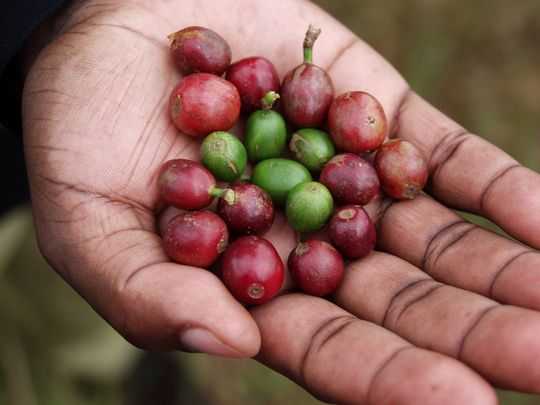MILAN, Italy – Where is the coffee market heading? A detailed picture of world trade in one of the most widely marketed products comes from data drawn up by the strategic marketing division of HostMilano and taken from the Export Planning information system.
The good news is that in 2021 world trade in coffee-related products did particularly well: +13.6% in values in euros for espresso coffee machines, so a clear sign that things are recovering, +13.1% for decaffeinated or roasted coffee and +8.8% for non-roasted coffee beans. The overall value of world trade in the three sectors has reached the highest ever recorded level of 34.5 billion euros.
For the 2022-2025 period a compound annual growth rate (CAGR) of +5.6% in values in euros is forecast for world trade in coffee products, with a total value expected to reach 43 billion euros.
On average in 2021, world trade in non-roasted coffee beans stood at 17.7 billion euros, although this is still lower than the all-time high recorded by the sector at the start of the last decade. A period of moderate expansion is expected for 2022-2025, with a CAGR of +4.6% in values in euros, exceeding the 20 billion-euro threshold for the first time (21 billion euros in 2025).
As for the world market rankings, the United States (22.4 per cent) and Germany (14.2%) were the main destinations in terms of sales in 2021, ahead of Italy (6.4%), Japan (5.1%), Belgium (4.2%) and Switzerland (3.8%).
The sector’s top exporter at a global level in 2021 was once again Brazil (with a 27.6% share), ahead of Colombia (13.9%), Vietnam (9,9%), Honduras (5.4%), Guatemala (3.6%), Ethiopia and Belgium (each with a share of 3.5%).
Final figures for world trade in decaffeinated or roasted coffee reached a new high of 12.3 billion euros, up 13.1% on 2020. The situation forecast for 2022-2025 is one of continued expansion as has been the case for some time, with a CAGR of +7.1% in values in euros, worth a total of over 16 billion euros.
France was the world’s top importer in this sector in 2021 with a share of 17.6 per cent, ahead of the United States (11.6%), which was some way ahead of Germany (6.2%), the Netherlands (5.5%) and Canada (4.5%).
As for exports, Switzerland held on to pole position with 23.1%, ahead of Germany (15.5%), Italy (13.4%) and France (10.3%).


















